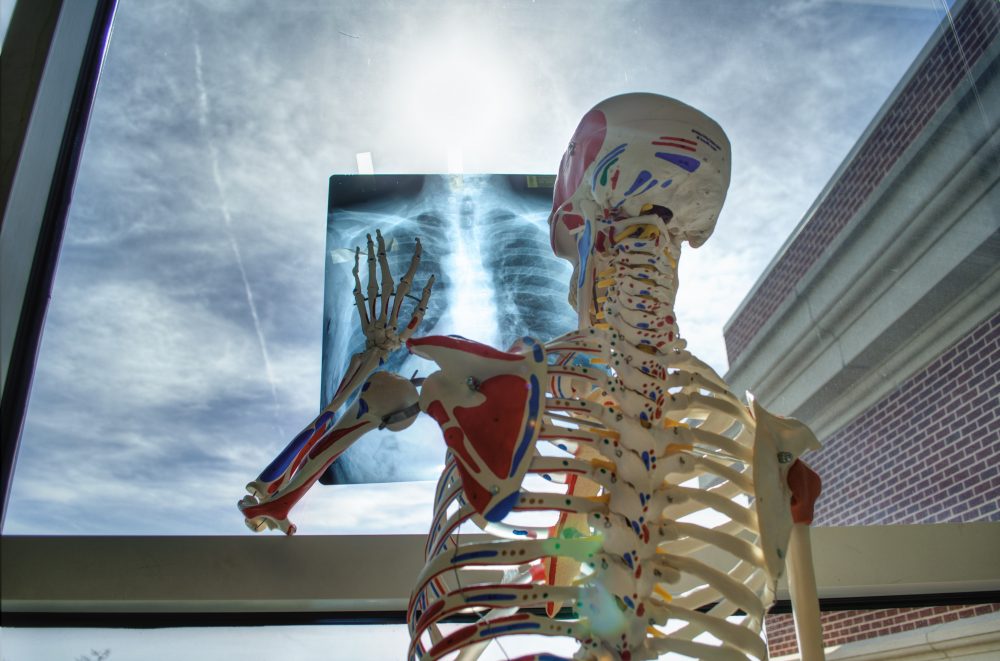Hello, world!
It has definitely been a while since the last time! Over 2 months!
I am sorry about the lack of posts but believe me when I tell you ‘There is no time to report all the things one lives as a medical student’.
My days are so busy and intense that whenever I have a few minutes I do what I have to do in order to keep my sanity.
Let’s go back to January.
That week full of exams (the one mentioned at the end of my last post) was an experience.
I rocked the Latin exam, Molecular Biology had a sweet end and Polish was better than I expected.
Latin is nothing you need to worry about since it is an elective course. They don’t intend to make your life hard when taking these courses. ?
Regarding the Molecular Biology exam: you only must retake the part that you failed. So I only had to retake the second part of the test. We were given 5 minutes for 5 questions (multiple choice).
Polish is a different story. You have an interview with a random Polish teacher (not yours for obvious reasons).
Firstly you must introduce yourself orally. Example: ‘Hello. My name is … and I come from … I am a medicine student. I am … years old.’.
Secondly, you are asked some basic questions about yourself and your family. Example: ‘Where do you live? What are you interested in? What does your mother do professionally?’.
Additionally, you will be given a card with pictures and you will be asked to describe them. I got a computer, a cup, and a book. So I had to say something like: ‘The book is yellow and big. The computer is old and heavy. The cup is red and new.’.
The next task is to read out a set of numbers in Polish. I remember that one of the numbers I got was 133 and I didn’t pronounce it correctly at first – that’s when you lose points.
Then you are given some words and a picture of a person. You must describe it. Example: ‘Anna is a doctor. She lives in Oslo. She is active, beautiful and healthy. She is interested in fashion.’
Finally, you must read out loud a small paragraph in Polish. Once you are done you will be asked about it. I guess they want to make sure you understand what you just read. It is no big deal but I understand that if one is very nervous things can get a little hopeless there.
I did my best and I was happy with the final outcome.
Polish is not a big course (2 ECTS). Unfortunately. It would be better to have it twice a week and double the number of hours in class (meaning a total of 180 minutes a week instead of 90). In the end, we live in Poland and it would help us a whole lot to be able to speak more and better Polish. Not to mention that we will need to use Polish in the hospital in some years… And at this pace, we will never be able to communicate properly.
Classes finished on the 27th of January.
In our last week of classes, we had one of the most important seminars in biophysics. Tip: paying attention during that seminar can actually benefit you.
The biophysics exam was on the 31st of January. The first 5 questions were the so-called ‘cardinal questions’ meaning that we could only fail 1 out of those 5. Otherwise, we would be automatically failed. The total number of questions (multiple choice): 45 (105 minutes).
I was obviously nervous but I must say that I found the questions rather fair. So if you know your stuff and you manage to keep your cool you will do fine. Just make sure you read the questions extra carefully as they are eliminatory questions.
I did not feel at my best that day. Tired, nervous, anxious. But somehow I managed to pass the exam. What a relief.
We did not have classes until the 20th of February. However, those 2-3 weeks felt nothing like a break. The second anatomy colloquium was scheduled for the 23rd and 24th of February.
Since I was so behind (due to all the other exams prior to the break) I had to make up for it with many hours of reading. Heavy reading. Anatomy is somewhat interesting but it can be really heavy at times.
The weeks prior to the exam were everything but fun. It is nice to be totally free from school but at the same time, I always feel guilty when taking long breaks. It is hard to establish the border between slacking and working efficiently toward your goal.
The days before the exam were really overwhelming. There was no life other than sleeping, eating, toilet trips and going to class. Revision, revision, revision. So much material and so little time to make sense out of it.
I must admit though that whenever I am studying for one of these big exams the little pieces of the puzzle all join together and make a beautiful bigger picture.
The theoretical part of the exam was on Thursday 23rd and consisted of 60 open questions (90 minutes). The questions are very direct and no long answers are required from us. I don’t remember writing a whole sentence in any of the questions. Either you know the structure they are asking about or you don’t.
The practical part was on Friday, 24th. It is such a stressful exam! I absolutely hate it.
On the way to the waiting room, I remember thinking to myself ‘Damn! Here I am again! Why?’.
It seems that you never have time write the structures correctly even though you do. The stress level is so high that I usually do not manage to write things in the order required to get the point. Some people struggle with the side (left or right) of the structures, others with spelling mistakes…
Once it is over I tend to feel very empty. Totally drained. Such a strange feeling. The stones in my stomach all the sudden disappear and I feel light. Very light.
The grades usually come after the weekend. This time around I didn’t score as good as in the first colloquium. Since the passing line here is 60% I am among those who failed the test. Never mind. The game is not over until it’s over.
The week after anatomy colloquium we had histology practical colloquium.
Since my group has histology on Friday’s at 10:15 AM we had a little less than a week to prepare. For those who have histology on Monday’s it was not that fun (they only had the weekend between the anatomy and the histology exam).
For this exam, we had a lot more histological slides and details to memorize. It is much harder to study for this one than for the one back in December. The slides are not that obvious anymore and you need to know how to write the structure down correctly.
Just studying the blood chapter… OMG! So many cells and all the little differences between them. Not a good idea to study only a couple of days before the exam. It is a recipe for disaster.
I managed to keep my cool once again and it went OK. Survived! I remember saying to one colleague of mine right before I entered the examination room ‘I hope we get the lip slide in one of the microscopes. It’d be nice of them.’. Guess what: it was my first microscope and I couldn’t identify it! Next time don’t wish for anything Hugo!
The week after we had the theoretical part of the histology colloquium. On Saturday the 11th of March. The material we were tested on was definitely more interesting than at the beginning of the year. However, a lot denser.
Honestly, the theoretical part was not a big deal. 62 questions (multiple choice) and 95 minutes. They were not as tricky as the ones back in December. My score went down a bit because I messed up some easy questions – which were related to each other therefore hurting me twice as much.
No big deal. It is part of the learning process. Now I know better so I can do better next time.
After histology, the pace has slowed down quite a bit. Our days are still consumed with anatomy, histology and a little bastard called embryology. The exam is on the 6th of April. So in less than 2 weeks. Not fun.
Now that I am studying it things are slowly falling into their place. It is time-consuming though. But that’s the price to pay when you don’t study consistently throughout the year.
While I am slowly getting to good terms with embryology the negotiation with anatomy is way more difficult.
Anatomy is a bitch. For the next months, the focus will be the head and neck. We’re back to the bones. Bones of the skull, its cavities, and muscles. The cranial nerves are a subject in themselves. Oh man… So complex.
I am definitely the lagging strand in this relationship. Always trying to catch up. Always on the run to catch the next loop of information. Pew!
On a more positive note, Spring has arrived in Gdansk and the sun is such a good source of energy! I love it!
The picture below was taken this morning when I was heading to the tram station.

Time to sleep now!
There are a couple of topics I would like to touch in my next posts.
Especially for those who are thinking about Gdansk to study medicine next year.
Good night!





1 comments On The lagging strand
Hello Hugo, so glad to see you post again! I have been waiting rather impatiently on my number one source of information regarding studying medicine in Gdansk! I would like to say thank you for all the thoughts and perspectives you have shared during your admission process and your first year at MUG. Having went through the very same process this year, (applying for Semmelweis, Jessenius, Pecs and MUG) I can truly say that it has been sooo helpful and relieving knowing that someone did it before me! And I am so happy to convey that I was admitted as well! However, I am now in the same position as you were, having to choose between the four.. my mind is currently leaning towards MUG though… do you have any thoughts on that? Anyways, thank you for your efforts, and best of luck on your exams!
Best Regards, Tobias
Comments are closed.